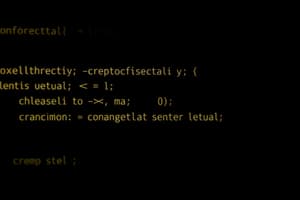Podcast
Questions and Answers
What is the purpose of the def keyword in Python?
What is the purpose of the def keyword in Python?
- To import a module
- To declare a variable
- To define a function (correct)
- To raise an exception
How are functions called in Python?
How are functions called in Python?
- Using the function name followed by parentheses (correct)
- Using the `call` function
- Using the `eval` function
- Using the `exec` function
What is the purpose of the return statement in a function?
What is the purpose of the return statement in a function?
- To raise an exception
- To exit a function and return a value (correct)
- To import a module
- To exit a loop
What is a lambda function?
What is a lambda function?
What happens if a variable is defined inside a function?
What happens if a variable is defined inside a function?
How can you pass a variable number of arguments to a function?
How can you pass a variable number of arguments to a function?
What is the purpose of the global keyword in a function?
What is the purpose of the global keyword in a function?
How can you pass keyword arguments to a function?
How can you pass keyword arguments to a function?
What is the default return value of a function if no value is specified?
What is the default return value of a function if no value is specified?
How can you assign a default value to a function parameter?
How can you assign a default value to a function parameter?
Flashcards are hidden until you start studying
Study Notes
Functions
Defining a Function
- A function is a block of code that can be executed multiple times from different parts of a program
- Functions are defined using the
defkeyword followed by the function name and parameters in parentheses - The function body is indented below the definition
Function Syntax
def function_name(parameters):# function body
Function Parameters
- Parameters are values passed to a function when it's called
- Parameters can be assigned default values using the
=operator def greet(name = 'World'): print('Hello, ' + name + '!')
Function Return
- The
returnstatement is used to exit a function and return a value - If no value is specified, the function returns
None def add(a, b): return a + b
Function Calls
- Functions are called by using the function name followed by parentheses containing the arguments
greet('John')orresult = add(2, 3)
Lambda Functions
- Lambda functions are small, anonymous functions that can be defined inline
lambdakeyword is used to define a lambda functionadd = lambda a, b: a + b
Function Scope
- Variables defined inside a function are local to that function and cannot be accessed outside
- Global variables can be accessed inside a function, but it's not recommended to modify them
globalkeyword can be used to modify a global variable inside a function
Function Arguments
- Arguments can be passed to a function in three ways:
- Positional arguments:
func(a, b, c) - Keyword arguments:
func(a=1, b=2, c=3) - Default arguments:
func(a, b, c=3)
- Positional arguments:
Variable Number of Arguments
- The
*operator can be used to pass a variable number of arguments to a function - The
**operator can be used to pass a variable number of keyword arguments to a function def func(*args, **kwargs):
Functions
Defining a Function
- A function is a reusable block of code that can be executed multiple times from different parts of a program.
- The
defkeyword is used to define a function, followed by the function name and parameters in parentheses. - The function body is indented below the definition.
Function Syntax
- The basic syntax for a function is
def function_name(parameters):followed by the function body. - The function body is indented below the definition.
Function Parameters
- Parameters are values passed to a function when it's called, and can be assigned default values using the
=operator. - Parameters can be assigned default values, which are used if no value is provided when the function is called.
Function Return
- The
returnstatement is used to exit a function and return a value to the caller. - If no value is specified, the function returns
Noneby default.
Function Calls
- Functions are called by using the function name followed by parentheses containing the arguments.
- Arguments can be passed to a function in different ways, including positional, keyword, and default arguments.
Lambda Functions
- Lambda functions are small, anonymous functions that can be defined inline using the
lambdakeyword. - Lambda functions are used to define small, one-time-use functions.
Function Scope
- Variables defined inside a function are local to that function and cannot be accessed outside.
- Global variables can be accessed inside a function, but it's not recommended to modify them.
- The
globalkeyword can be used to modify a global variable inside a function.
Function Arguments
- Arguments can be passed to a function in three ways:
- Positional arguments:
func(a, b, c) - Keyword arguments:
func(a=1, b=2, c=3) - Default arguments:
func(a, b, c=3)
- Positional arguments:
Variable Number of Arguments
- The
*operator can be used to pass a variable number of arguments to a function. - The
**operator can be used to pass a variable number of keyword arguments to a function. - The
*argsand**kwargssyntax can be used to pass a variable number of arguments and keyword arguments to a function.
Studying That Suits You
Use AI to generate personalized quizzes and flashcards to suit your learning preferences.




